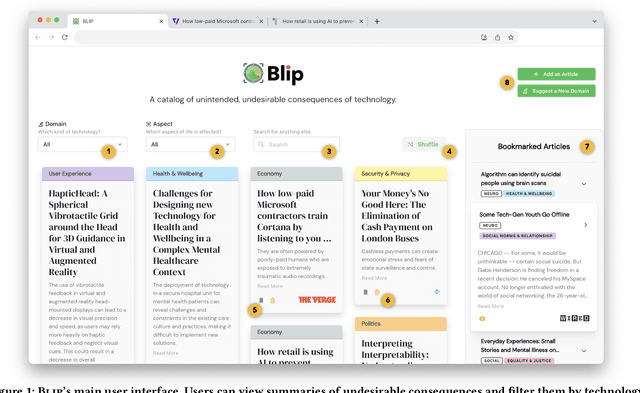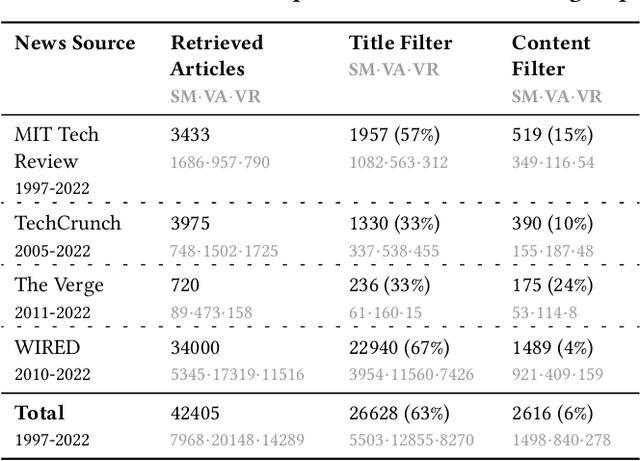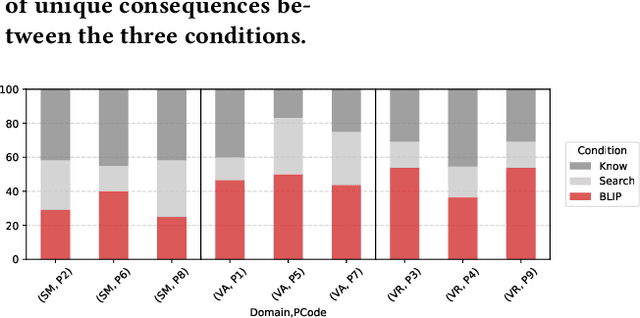Rock Yuren Pang
OLMoTrace: Tracing Language Model Outputs Back to Trillions of Training Tokens
Apr 09, 2025Abstract:We present OLMoTrace, the first system that traces the outputs of language models back to their full, multi-trillion-token training data in real time. OLMoTrace finds and shows verbatim matches between segments of language model output and documents in the training text corpora. Powered by an extended version of infini-gram (Liu et al., 2024), our system returns tracing results within a few seconds. OLMoTrace can help users understand the behavior of language models through the lens of their training data. We showcase how it can be used to explore fact checking, hallucination, and the creativity of language models. OLMoTrace is publicly available and fully open-source.
BLIP: Facilitating the Exploration of Undesirable Consequences of Digital Technologies
May 10, 2024



Abstract:Digital technologies have positively transformed society, but they have also led to undesirable consequences not anticipated at the time of design or development. We posit that insights into past undesirable consequences can help researchers and practitioners gain awareness and anticipate potential adverse effects. To test this assumption, we introduce BLIP, a system that extracts real-world undesirable consequences of technology from online articles, summarizes and categorizes them, and presents them in an interactive, web-based interface. In two user studies with 15 researchers in various computer science disciplines, we found that BLIP substantially increased the number and diversity of undesirable consequences they could list in comparison to relying on prior knowledge or searching online. Moreover, BLIP helped them identify undesirable consequences relevant to their ongoing projects, made them aware of undesirable consequences they "had never considered," and inspired them to reflect on their own experiences with technology.
Auditing Cross-Cultural Consistency of Human-Annotated Labels for Recommendation Systems
May 10, 2023



Abstract:Recommendation systems increasingly depend on massive human-labeled datasets; however, the human annotators hired to generate these labels increasingly come from homogeneous backgrounds. This poses an issue when downstream predictive models -- based on these labels -- are applied globally to a heterogeneous set of users. We study this disconnect with respect to the labels themselves, asking whether they are ``consistently conceptualized'' across annotators of different demographics. In a case study of video game labels, we conduct a survey on 5,174 gamers, identify a subset of inconsistently conceptualized game labels, perform causal analyses, and suggest both cultural and linguistic reasons for cross-country differences in label annotation. We further demonstrate that predictive models of game annotations perform better on global train sets as opposed to homogeneous (single-country) train sets. Finally, we provide a generalizable framework for practitioners to audit their own data annotation processes for consistent label conceptualization, and encourage practitioners to consider global inclusivity in recommendation systems starting from the early stages of annotator recruitment and data-labeling.
 Add to Chrome
Add to Chrome Add to Firefox
Add to Firefox Add to Edge
Add to Edge